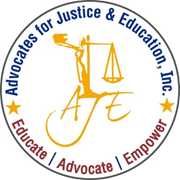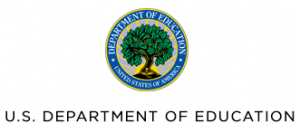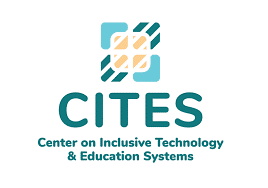 AJE wants to make sure that our families are well informed about what is going on locally, and federally, in Education Policy that might be of interest to the DC Families we work with.
AJE wants to make sure that our families are well informed about what is going on locally, and federally, in Education Policy that might be of interest to the DC Families we work with.
That is why we are sharing these updates from the US Department of Education and the Office of Special Education Programs (OSEP). We hope you find it helpful!
_________________________________________________________________________________________
 OCR reminds schools of their obligations under Title VI of the Civil Rights Act
OCR reminds schools of their obligations under Title VI of the Civil Rights Act
The Education Department’s Office for Civil Rights (OCR) released a fact sheet reminding school communities (PK-12 schools, colleges, universities, educators, faculty, students, parents, and families) of their federal civil rights obligations under Title VI of the Civil Rights Act — to take prompt and effective action to respond to harassment that creates a hostile environment based on race, color, or national origin. The fact sheet offers information about how OCR determines the existence of a hostile environment and details school communities’ obligations to address and remedy a hostile environment. It also provides hypothetical examples to help school communities assess these obligations. It reaffirms, for example, that when any visitor to a campus contributes to a hostile environment, the school must respond. Likewise, it illustrates how a disciplinary response may be insufficient, without additional action, to redress the effects of a hostile environment for affected persons.
Student Loan Repayment
The Biden Administration announced it is appealing recent court rulings blocking parts of the Saving on a Valuable Education (SAVE) Plan. “President Biden, Vice President Harris, and I remain committed to our work to fix a broken student loan system and make college more affordable for more Americans,” Secretary Cardona said in a June 25 statement.
Last week, an appellate court issued an emergency motion allowing the Department to implement the SAVE Plan’s provisions scheduled to take effect, while the agency appeals the preliminary injunction. The stay applies only to the injunction by the district court in Kansas, concerning lower payments starting July 1, not the injunction by the district court in Missouri, concerning future loan forgiveness.This stay means that, while the injunction has not been overruled, its impacts are temporarily limited. As a result, the Department will continue to implement the lowering of undergraduate loan payments — from 10% of a borrower’s discretionary income to 5% — under the SAVE Plan.
New OCR Resources for students with sickle cell, epilepsy and cancer
OCR issued new resources reminding students with disabilities and K-12, colleges, and universities of their respective rights and responsibilities under Section 504 of the Rehabilitation Act of 1973 regarding students with sickle cell disease, epilepsy, and cancer.
New Resources for Teachers and Families of Children who are DeafBlind and Parent Stories
The National Center on Deafblindness has added some great new videos to the module Early Intervention for Children Who Are Deafblind in the Teaching Children Who Are Deafblind: Professional Development for Educators series. The videos feature mothers of children who are deafblind who share their experiences during the critical years of early intervention and the teamwork that’s involved. You’ll find the videos under “Parent Perspectives” in the module’s navigation menu. The videos enhance the content of the module’s lessons by providing additional insights into the experiences of family members.
New Guidance about Assistive Technology
 The Center on Inclusive Technology & Education Systems shared a new assistive technology (AT) guidance FAQ. The FAQ clarifies details about the background information and implementation of the guidance.
The Center on Inclusive Technology & Education Systems shared a new assistive technology (AT) guidance FAQ. The FAQ clarifies details about the background information and implementation of the guidance.
Don’t miss the opportunity to help squash misconceptions regarding AT. Share the Myths and Facts resource today!
Highlights from OSEP Director Williams regarding her recent trips to Coppin State and Delaware State
There are two additional trips I’d like to highlight. Earlier in the year I visited Coppin State University, and in May, Delaware State University. Both Coppin State and Delaware State are Historically Black Colleges and Universities (HBCUs) and receive OSEP Personnel Preparation grants.
There are approximately 100 HBCUs—mostly in the southeastern states (if you draw a line between Oklahoma City and Philadelphia, almost every state along and south of the line have an HBCU). HBCUs were founded in the 19th century as African Americans did not have access to higher education, or states created separate colleges and universities for African Americans. Even with passage of the Civil Rights Act, 60 years ago this month, and a national prohibition on discrimination based on race, color, or national origin in programs or activities receiving federal financial assistance, HBCUs have continued to thrive and play a vital role in our country with HBCUs employing over 130,000 and generating nearly $15 billion of economic impact annually.
And while economic impact is important, what matters most is impact in the classroom. Having a diverse teacher workforce is critically important. For example, Professor David Blazar at the University of Maryland found that having an African American elementary school teacher produced greater outcomes for all students, regardless of students’ race. Students had increased math and reading test scores and decreased chronic absenteeism by roughly 60%. Further a new study also shows that African American Teachers are less likely to identify students—and particularly low-income Black boys—for special education. I am excited to learn more about these and other important research findings.



Leave a Reply